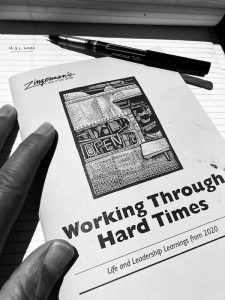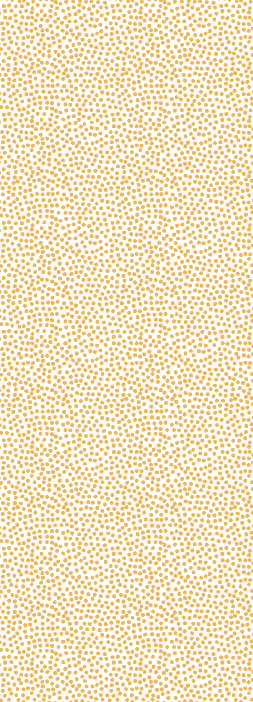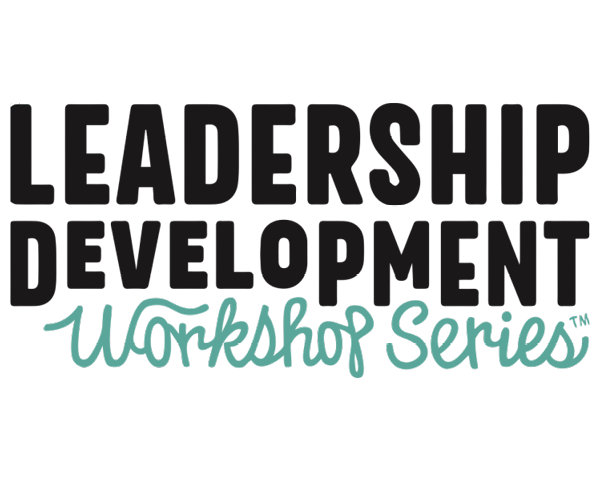“Working Through Hard Times: Life and Leadership Learnings from 2020”
A new pamphlet release from Zingerman’s Press

At the end of this week, I have a new pamphlet coming out. Like the pandemic, it wasn’t something I’d planned for. While the idea for the previous pamphlet—“Humility: A Humble, Anarchistic, Inquiry”—had been in the works for over a year, the idea for this one only came into my head a couple months ago. I was trying, like everyone I know, to make some sense of the world. To find my emotional footing and get enough spiritual traction (and yes, financial resources) to continue to push positively forward. The idea to do it popped up when I was journaling one morning back in the fall. It was becoming ever clearer that we were, at best, maybe only halfway through what I had, many months earlier, begun to call a “marathon through a minefield.” I realized that if I—who teaches, writes about, and implements this kind of stuff for a living—was struggling to stay centered and positive, then, perhaps the things that were helping me to stay the course might also be of benefit to others. So partly for my own sanity, and partly in service of others, I decided (with help, insight, and support of Jenny Tubbs who makes Zingerman’s Press into the print-worthy reality that it is) to make it happen. The whole project is a bit what Anaïs Nin (who lived through the Spanish flu pandemic as a teenager) once said: “I walked into my own book, seeking peace.”
Unlike most of the rest of 2020—nearly all of which feels wrong and out of whack—putting out the pamphlet just felt right. Wendell Berry, whose work inspires me nearly every week, tells a story that starts with, “As often in my life, I got a book just when I needed it.” That’s definitely been true for me too. But I’m realizing, looking back on all the writing I’ve done over the years, that the inverse is actually also accurate: I’ve written books, it turns out, just when I needed them. I can see now that I needed to do this one, as a small way to help you (if you’re interested) and I both, to make some sense of the year that’s just ended. And also, to gather our wits and a bit of timeless wisdom about us to help get through the many months we still have to go. I know, in hindsight, that writing the pamphlet has helped me heal and to put things in perspective. I hope, from the heart, that it can do some of the same for you as well.
One of the good problems of doing what I do at Zingerman’s is that I get asked to write a lot of letters of recommendation. Many are easy—they’re for folks I’ve loved working with, so I can quickly and happily sing their praises on paper or in online college admission forms. Other times, it’s a bit more awkward. Still, I want to be helpful to anyone I can—I really do believe that everyone will go on to do great things. And so, unless it’s completely impossible, I try hard to find the positives in whatever the person has done here, then shape and share those thoughts, honestly and accurately. I don’t dwell on the downsides, which we all have. As Matisse said, “There are always flowers for those who choose to see them.” So, if 2020 were to ask me to write it a letter of recommendation, I’m not quite sure what I would say in response. On the one hand… seriously? What’s to recommend? I’m pretty sure I would choose not to rehire 2020 in any business I was part of. But at the same time, my commitment to seeing the positives and to learning from difficult situations and painful shortfalls, tells me I could still find ways to write an honest and accurate bit of a letter. So, it might be something like:
To Whom It May Concern: During its time here, 2020 has taught me so much about resilience. 2020 has helped reinforce the value of connection to colleagues and community, and it’s reminded me regularly of the value of self-reflection. I can say with confidence that 2020 has left me feeling more positively than ever about the importance of regimens like journaling, making phone calls to friends, and writing visions. And it’s helped me see more clearly than ever just how important it is to bring the brightness of hope into what seem to be the darkest of days. I feel confident that, in its own unique and very special way, 2020 could bring these valuable gifts—and more—to you and your organization as well. If I can be of help in any way, or answer additional questions, feel free to email me at [email protected].
Or, I could now add, “For more stories about what 2020 can do for you, see my pamphlet, ‘Working Through Hard Times: Life and Leadership Learnings from 2020.’” Because, as the once-again (I’m happy to say) Surgeon General of the U.S., Dr. Vivek Murthy, writes in his terrific new book, Together:
Even in the absence of others, stories make individuals feel connected and promote a sense of belonging… Ever since the first cave drawing, we’ve been encoding our experiences in stories through words, pictures, music and rituals to be passed down from generation to generation. These tales help us to understand who we are. They give meaning to our struggles, and comfort us when we are suffering or afraid. They bring us together.
The new pamphlet, I realize, has some of all of the things Dr. Murthy mentions. I hope that it works the way Dr. Murthy very lovingly describes—that it helps to bring us together. Poet and writer David Whyte says: “An elegy… is always a conversation between grief and celebration. The grief of the loss of the person and the celebration that you were here at all to share the planet with them.” In which context, I guess I could say that the new pamphlet could serve as an elegy to 2020. It shares grief for the loss and hardship that people have had to go through. It celebrates that we have been here, to look at what we can learn from it, and to try to see things through to the other side. “Working Through Hard Times,” in a sense, is my own, imperfect, effort to make some sense out of what we’ve all been through in the last ten months. It’s an attempt to make (more) whole what has mostly felt fractured—to reconnect in meaningful ways even while we barely see each other from six feet apart, and wear masks that make it hard to hear what we’re trying to say.
“On Being” host Krista Tippett says, “Questions elicit answers in their likeness.” So many people have spent the year speculating on what will be different after the pandemic. For me, the question was: what will be the same? What are the timeless human learnings that have helped us for so many thousands of years, help us still in the present, and will continue to help us for many years to come? If you take out the technological references, I have a feeling that 98 percent of what’s in “Working Through Hard Times” could have been written in the last pandemic, back in 1919 when the Spanish flu was raging, and racism was also more overtly rampant than ever. In that sense, I wanted the pamphlet to be both of the moment—a memento of the madness that was 2020—and yet at the same time, timeless stuff that you can draw on long after COVID-19 is mostly found only in history books. Because, like it or not, we will all continue to work through hard times for the rest of our natural lives.
In which context, “Working Through Hard Times” includes a number of tools and techniques that help me to get through challenging periods. Journaling, embracing solitude, calling friends on the phone, working to enhance hope, and writing inspiring and strategically sound visions of the future. (It’s also got an incredible scratchboard drawing on the cover by Ian Nagy.) My hope is that the pieces in the pamphlet will also be of value to you. In fact, a big part of what makes the writing work for me is the belief that it will help others to more effectively lead their organizations and live their lives. The writing helps me take my own struggles and turn disconcerting confusing situations into calming ways to work more effectively; ways to work that can also work for others around the world. To bring the love that I’ve written a lot about over the course of the last month and make it come alive in small but meaningful ways. Because as author Barry Lopez writes, “We cannot, of course, save the World because we do not have authority over its parts. We can serve the world though. That is everyone’s calling, to lead a life that helps.” As hard as 2020 has been, I chose the lines for the back cover of the new pamphlet because I believe they’re true. And because reading them reminds me that being hopeful is the right thing to do. It’s a quote from Congressman John Lewis, one of a number of great leaders we lost last year: “Be hopeful,” he said. “Be optimistic. Never lose that sense of hope.”
Putting a piece of my heart and my mind out in the world is a much more vulnerable place than I would, by nature, ever want to be. When I have new books or pamphlets come out, many folks I know ask if I’m excited. The honest answer is no. For the first four or five weeks after they come out, I’m mostly just anxious. Which I guess is an odd thing to say after I just told you that I wrote this in part in order to help get re-grounded. But as musician Joan Shelley says, “Whether it be a physical place or an idea, everyone needs a place of comfort. One where we can look out again from that place of calm and see how to best act and to be in an uncertain world.” Doing the writing has given me a way to seek that calm and comfort in the craziness that has made up most of the last year. I’m anxious about it now, but in that way anyone who puts creative work out in the world will be familiar with. It’s an uncomfortable stage we have to go through (or in some cases, get on) in order to keep learning and helping those around us to do the same. The new pamphlet won’t cure COVID-19, resolve racism, or make politics suddenly peaceful, but it’s one small way that I know to send something positive out to the world that can help those who are interested—now, in the start of the second half of the pandemic, and also ten years from now when new problems none of us ever imagined will have come our way.
Aside from the kind of things I’ve referenced above, the Preface to the pamphlet makes note of a lot of songs, lyrics, and musicians. (It’s entitled, “A Perspective from Partway Through the Pandemic: A lyrical look, backward and forward, as we make our way through the minefield.”) Mostly I mention music that I listened to a lot over the course of the year (like Adrianne Lenker’s new album, Songs), or ones I went back to because they seemed so appropriate for what we were dealing with (like Mirel Wagner’s “No Death” or Bonnie Prince Billy’s “I See a Darkness”). Lenker’s music, in particular, has resonated with me a lot this year. Maybe it’s the moment, maybe it’s me, though more than likely it’s the loveliness of her work and her dedication to her craft. I didn’t reference it in the pamphlet, but some of the words from her song “Love of Some Kind” seem to sum up what most everyone I’ve talked to has been saying, each in their own way, over the course of the crazy year that was 2020:
I don’t have much but what I’ve got
Is something I can give
And I’ve found that on your own is no good way to live
So what d’you say?
Nothing much in our way
And the world is always turning
And the light is yearning
It’ll be just fine
Would you mind?
I could use a heart
I could use a home
I could use a love of some kind
We can all, now more than ever, use love. That’s why, I’m sure, I wrote so much about it the last few weeks. We teach what we ourselves need most. Love is not one of the “tools” I wrote about specifically in the pamphlet, but it’s embedded in all of it. I hope that when you read it, it will help to keep love alive. To Dr. Murthy’s point, we’re in this together. Early on in all this, Monica Nedeltchev, who’s an integral part of the Roadhouse kitchen crew, said at a chef’s meeting we were having, “It sucks that we have to go through this. But if we have to go through it, I’m glad we get to go through it with such a great group of people.” I agree. I feel very fortunate. Yes, the news has been dark, and the stress has been high. But, if we look, the beauty is still there to be seen, heard and felt. And in our case here, tasted.
I would not have gotten through to this point had I not been supported and surrounded by—both physically and emotionally—so many great people. Love in this community—both here in town, in the ZCoB, and in the greater Zingerman’s ecosystem—is in the air. Yes, we’re only at the halfway point. But we will get through this. As I closed out the preface to the pamphlet:
I believe that collaboration and kindness and caring for each other will help us overcome. Yes, we need to find ways to make the finances work and to stay healthy. But as I remind myself regularly, take a deep breath. Learning to look for lessons from the past, to embrace solitude, build hope, dig into dignity, manage through the Zone of Doubt and Blame, and regularly picking up the phone to call friends, won’t alone cure COVID-19, or make the other struggles in our lives magically disappear. But they will help us get past the pandemic and the other problems we will certainly be faced with in the future. The beauty—with a lot of hard work and positive healthy beliefs—will bring us through the hard times. I believe in beauty and I believe in you.
*** This post is an excerpt from Ari’s Top 5, a weekly newsletter from Ari himself. Sign up to receive Ari’s Top 5 here!
Buy your own copy of “Working Through Hard Times” here.
Check out this webinar to hear Ari reflect on this new pamphlet and explore what 2020 can teach us about life and leadership.
 Back to Library
Back to Library





